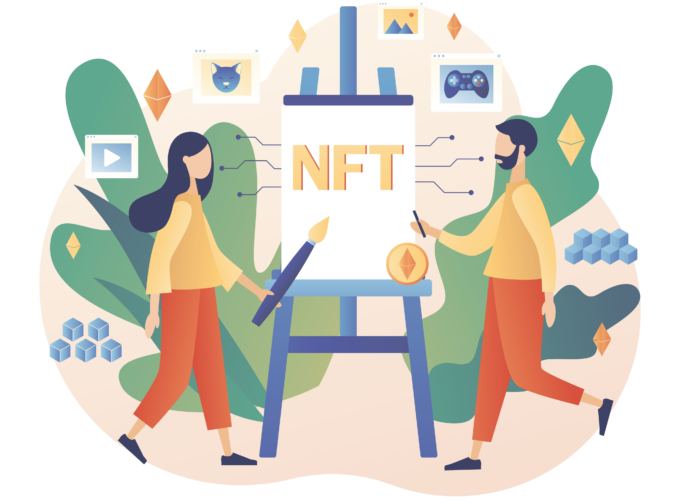

The ABCs of SPACs & NFTs
SPAC and NFT – these two acronyms have been in vogue as of late, and the way they’re portrayed seems to leave readers with another acronym, FOMO, or rather, the fear of missing out. The question is, what are these things and are we missing out on something big?
SPAC
What is a SPAC?
Let’s start off with the SPAC, or Special Purpose Acquisition Company, a vehicle by which a private company may choose to go public without the rigmarole imposed by the more well-known method of the initial public offering (IPO).
SPACs are formed by a group of sponsors, usually consisting of seasoned investors, private equity firms, or venture capitalists. Once formed, the SPAC is just a shell of a company. It is purposefully made to be as simple a structure as possible, so that it can efficiently pass through the administrative hurdles to become a public entity. After creation, the SPAC goes public and raises capital, which is then placed in a separate trust account. The sponsors then use the money within the SPAC to acquire a private company.
SPACs are often called a “blank check investment” because investors do not know what company they will end up owning at the onset. Faith must be placed on the sponsor to identify and acquire the right private company. Granted, there are some controls in place to protect the investors. The target company must be approved by shareholders of the SPAC, and if one isn’t successfully identified and approved within a specific timeframe, then investors get their money back.
Assuming shareholder approval, the target company is acquired by the SPAC, and thereby becomes a public company. Once the acquisition is complete, the SPAC’s investors can either continue with the investment or redeem their SPAC shares to receive their pro rata share of the trust account.
Why not just take the company public via IPO?
For a company going public, utilizing a SPAC allows a quicker, less cumbersome entry to public markets compared to a traditional IPO. For the average investor, it allows access to the growth associated with IPOs, which are predominantly reserved for “accredited investors.”
It’s important to understand that this reduced barrier to entry comes with the burden of greater risk. Because of the shortened timeline for the SPAC process, due diligence may not be as in-depth as would typically be seen in a standard IPO.
Are SPACs here to stay?
SPAC transactions have been part of the landscape for years and have gone in and out of vogue during various periods. 2020 was a record-breaking year for SPAC transactions with early 2021 transactions continuing at a rapid pace. Some notable transactions include a wide range of industries including fitness (The Beachbody Company), health (23andMe), pets (Barkbox, Inc) and entertainment (Playboy).
There is no doubt that SPACs will continue to exist, but it is unclear if they will remain as popular as we saw in 2020. In fact, in the recent past there has been a cooling off due to regulatory pressure and poor performance.
NFT
What is an NFT?
Now let’s move on to the NFT, or Non Fungible Token, which is used to represent authenticity of any number of digital collectibles from art to sports memorabilia. Sales of NFTs are recorded on a digital ledger (blockchain) which gives buyers proof of legitimacy and ownership.
Purchases are made using cryptocurrency such as Bitcoin or Ethereum. In fact, the blockchain technology underlying NFTs is the foundation of cryptocurrencies. The main difference is that an NFT is unique like an original piece of art while one Bitcoin can be exchanged for another Bitcoin just like a $20 dollar bill.
Popularity of NFTs has exploded over the last year, with artists, musicians, journalists and athletes all getting in on the craze. Even Jack Dorsey, the founder of Twitter, sold his first Tweet as an NFT for over $2.9 million. Now this may sound a bit confusing; a tweet, which is available for all to see on Twitter at any time, just sold for $2.9 million?
Think of this like the digital equivalent of art at a museum. Who’s to say that my son’s abstract art (aka fingerpainting) is worthless while Jackson Pollock’s paintings are worthy of display at New York’s Museum of Modern Art? This is a dramatic over-simplification but it highlights the point – value is ultimately in the eye of the beholder.
An example of this is highlighted by the most significant sale in this space, which was by an artist named Beeple, who sold a digital NFT containing a collage of 5,000 pieces of his digital artwork for $69 million. It is the third-most valuable artwork sold by a living artist – not bad for an artist whose work is described by New York Times as having a “brash, in-your-face appeal, like a political sketch cartoon in a dystopian video game”.
What is the benefit of NFTs?
For digital artists, NFTs provide a benefit never before seen in the art and collectible world. Because the technology allows ownership of these digital masterpieces to be transferred and tracked, artists are able to receive a commission not just on the first sale of the artwork but also on every subsequent sale of the same piece. Imagine all of the living artists who could be paid a commission for the sale of their artwork as it changes hands and increases in value as their work becomes more prominent?
As a collector, an NFT provides a way to own digital art and prove authenticity. Much like you could know that you own the painting that was painted by Leonardo Da Vinci, you can own the digital copy of a song that Taylor Swift remastered on her computer.
As an investor, purchasing an NFT is purely speculative. Just as in the fine art world, fair market value for digital artwork and collectibles depends solely on what the market will bear – are there more people who want to own something than there are available to buy? If so, the price goes up.
How do these investments impact ME?
In short, if you remain focused on investing for your long-term goals, they don’t.
SPACs and NFTs, while incredibly interesting, are highly speculative and should be considered as such. I’ll remind you of a point we often make when discussing whether a specific investment or asset class belongs in your long-term portfolio – is this investing or speculation? If you are looking at investments as a way to save and grow your wealth, you want to be an Investor, not a Speculator.





